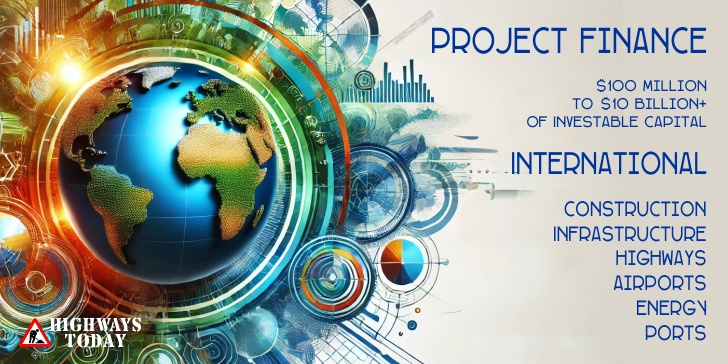BlackRock Expands its Global Reach with Acquisition of Infrastructure Giant GIP
In a significant move that’s set to reshape the global infrastructure investment landscape, BlackRock, Inc. has finalised its acquisition of Global Infrastructure Partners (GIP), one of the world’s largest infrastructure investment firms. This strategic deal strengthens BlackRock’s already formidable position in global infrastructure markets, with GIP bringing over US$100 billion in assets under its management.
By merging GIP’s sector expertise with BlackRock’s global reach and vast resources, the acquisition is poised to create new investment opportunities across critical sectors such as energy, transport, and digital infrastructure.
This article delves into the impact of this acquisition, what it means for the future of infrastructure investment, and how it sets the stage for BlackRock’s continued expansion into essential industries.
A Bold Step in Infrastructure Investment
As the world’s largest asset manager, BlackRock has long been a dominant player in financial markets. However, this acquisition signals its commitment to expanding into more tangible, infrastructure-focused assets that are crucial to global economic growth. GIP, with its established investments in major sectors like energy, transport, and digital infrastructure, aligns perfectly with BlackRock’s goal of increasing its footprint in sustainable and long-term investments.
By acquiring GIP, BlackRock isn’t just adding assets to its portfolio; it’s enhancing its ability to influence the future of infrastructure globally. “This acquisition strengthens our ability to deliver long-term value to our clients by investing in critical infrastructure assets that are essential to the functioning of economies and societies around the world,” said Larry Fink, CEO of BlackRock.
With regulatory approvals expected by Q3 2024, BlackRock has made it clear that this deal is about more than just numbers. It’s about reshaping how global infrastructure investment works, with a focus on innovation and sustainability.
A Game Changer for BlackRock
GIP has made a name for itself by investing in infrastructure assets that directly impact global connectivity and energy sustainability. Its portfolio is diverse, spanning from airports and ports to renewable energy platforms that are essential for the green transition. For BlackRock, this acquisition means access to some of the most critical and future-proof infrastructure assets worldwide.
- Airports and Ports: GIP has been instrumental in managing major airports across the globe, including London City Airport, Gatwick, and Edinburgh Airport. These assets are vital nodes in global transport networks, and their inclusion in BlackRock’s portfolio positions the company to benefit from rising demand in air travel and logistics.
- Renewable Energy: As the world shifts towards cleaner energy, GIP’s renewable energy investments, including wind, solar, and hydroelectric platforms, offer BlackRock an opportunity to align with global trends in sustainability. This is particularly crucial as governments and industries look to reduce carbon footprints.
By merging with GIP, BlackRock isn’t just expanding its portfolio—it’s enhancing its ability to deliver on sustainable development goals. In fact, this acquisition positions the asset manager as a major player in the transition to a low-carbon future, making it a top choice for investors seeking sustainable, long-term growth.
What the Acquisition Means for the Future of Infrastructure Investment
The acquisition of GIP by BlackRock is more than just a business transaction—it reflects broader shifts in the world of infrastructure investment. As populations grow and global demand for energy, transportation, and digital connectivity rises, the need for robust infrastructure becomes increasingly urgent. Investors are looking for long-term, resilient assets that can provide stable returns, especially in uncertain economic climates.
By acquiring GIP, BlackRock is well-positioned to capitalise on these trends. The integration of GIP’s sector-specific knowledge and BlackRock’s extensive global resources could lead to more innovative solutions in sectors such as:
- Smart Cities: As urban populations continue to rise, there’s growing interest in developing smart cities that use digital infrastructure to improve efficiency and quality of life. BlackRock’s new capabilities in digital infrastructure investment could fuel projects aimed at making cities more connected, sustainable, and resilient.
- Green Energy Transition: With GIP’s renewable energy portfolio now under its belt, BlackRock can further its efforts to support the global green transition. Whether it’s through wind, solar, or other forms of clean energy, the combined force of these two giants could lead to significant advancements in reducing global carbon emissions.
Moreover, BlackRock’s acquisition of GIP signals a shift towards more resilient, long-term investment strategies that prioritise sustainability and innovation. It’s no longer just about financial returns—it’s about creating lasting impacts on global infrastructure.
New Opportunities for Investors
This acquisition opens up new avenues for investors interested in infrastructure as an asset class. With GIP’s deep sectoral expertise and BlackRock’s global reach, the combination offers a unique opportunity for investors to tap into assets that not only provide steady returns but also play a crucial role in shaping the future of global infrastructure.
For those looking to invest in energy, transport, or digital infrastructure, the newly integrated BlackRock-GIP entity provides access to projects that are critical to global development. Furthermore, the growing emphasis on sustainability means that these investments are well-positioned to thrive in a future increasingly focused on green initiatives.
From a broader perspective, the acquisition reflects the rising importance of infrastructure as an investment class. As the world grapples with challenges like climate change, population growth, and economic instability, infrastructure assets offer a level of stability and resilience that other investments may lack.
A Strategic Step Towards a Sustainable Future
Ultimately, the acquisition of GIP is a strategic move that cements BlackRock’s leadership in the global infrastructure market. With more than US$100 billion in assets now under its wing, BlackRock has significantly enhanced its capacity to invest in the critical infrastructure projects that will drive future economic growth.
Through this acquisition, BlackRock is not only expanding its portfolio but also playing a key role in the transition towards a more sustainable and connected world. As global economies evolve, infrastructure investment will continue to be a critical driver of growth, and BlackRock’s expanded capabilities make it well-positioned to lead the way.






























